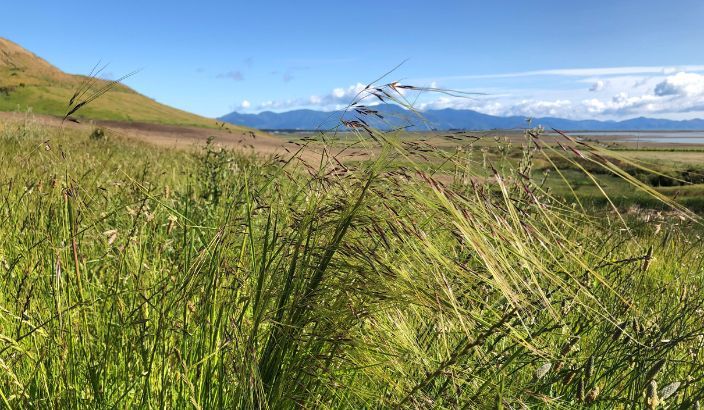Biosecurity challenges require adequate funding


Chilean needle grass plant in Marlborough. Photo: Supplied.
Tony Orman
Biosecurity in Marlborough faces on-going challenges not only in containing current undesirable species but in areas of the potential for new ones and the perennial problem of adequate funding said Liam Falconer, Marlborough District Council Biosecurity manager in a presentation.
Chilean Needle Grass was an on-going focus heightened by increasing incidence. “The total number of properties now affected by Chilean Needle Grass is now 246 compared to 205 in 2021 and it’s of deep concern that annually, with another 9 properties infected. It’s a real challenge,” he said. “Recently the grass was found for the first time south of the Ure River”.
There was a need to intensify the focus on education and communication with a need to talk more to farmers, contractors and rural sectors and emphasise the need for vigilance in the likelihood of spreading seed with movements of stock, soil, hay and machinery. A Chilean Needle Grass bio-control agent has been released.
Liam Falconer stressed that council was not coming down hard in a regulatory sense but wanted to work in with farmers. “We know there’s almost certainly more Chilean Needle Grass out there and we’ll be talking to farmers about the importance of observation,” he said. “Biocontrol measures can be a long, slow burn and take many years to make an impact. So short-term we need to see and act quickly.”
